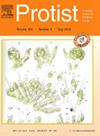Environmental interactions between protists and bacterial communities in hydrocarbon degradation
IF 2.1
3区 生物学
Q4 MICROBIOLOGY
引用次数: 0
Abstract
Reclamation of petroleum-polluted environments is a key issue for today and in the future, as our reliance on oil will persist for decades. An eco-friendly solution is to use microbes that play a role in petroleum-hydrocarbon degradation. However, as hydrocarbon degradation involves a multi-step process involving different functional groups, focusing only on finding efficient bacterial species will not be the complete solution. Heterotrophic protists are unicellular eukaryotic microorganisms that could play a role in remediation of ecosystems by enhancing petroleum-hydrocarbon degradation through different mechanisms. This mini-review discusses the importance of protists in the degradation of petroleum-hydrocarbon and their predatory impact on hydrocarbon-degrading bacterial communities. Additionally, the effect of hydrocarbons on protistan community structure and protistan cells is discussed. A better understanding of the puzzle hydrocarbon-protist interactions will significantly increase our knowledge of how to employ these microbes for bioremediation of hydrocarbon pollutants.
碳氢化合物降解过程中原生生物与细菌群落之间的环境相互作用。
由于我们对石油的依赖将持续几十年,石油污染环境的回收是当今和未来的一个关键问题。一个生态友好的解决方案是使用微生物,它们在石油碳氢化合物的降解中发挥作用。然而,由于碳氢化合物的降解是一个涉及不同官能团的多步骤过程,只关注于寻找有效的细菌种类并不是完整的解决方案。异养原生生物是一种单细胞真核微生物,可以通过不同的机制促进石油烃的降解,在生态系统中发挥修复作用。本文综述了原生生物在石油烃降解中的重要作用及其对烃类降解细菌群落的影响。此外,还讨论了碳氢化合物对原生生物群落结构和原生生物细胞的影响。更好地理解碳氢化合物与原生生物之间的相互作用,将大大增加我们对如何利用这些微生物对碳氢化合物污染物进行生物修复的认识。
本文章由计算机程序翻译,如有差异,请以英文原文为准。
求助全文
约1分钟内获得全文
求助全文
来源期刊

Protist
生物-微生物学
CiteScore
3.60
自引率
4.00%
发文量
43
审稿时长
18.7 weeks
期刊介绍:
Protist is the international forum for reporting substantial and novel findings in any area of research on protists. The criteria for acceptance of manuscripts are scientific excellence, significance, and interest for a broad readership. Suitable subject areas include: molecular, cell and developmental biology, biochemistry, systematics and phylogeny, and ecology of protists. Both autotrophic and heterotrophic protists as well as parasites are covered. The journal publishes original papers, short historical perspectives and includes a news and views section.
 求助内容:
求助内容: 应助结果提醒方式:
应助结果提醒方式:


